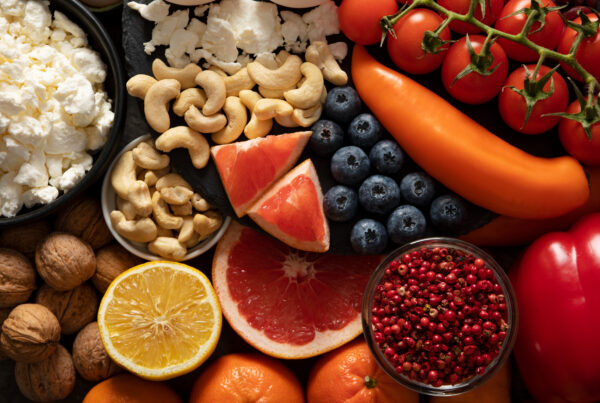Explore wholesome and power-packed foods that boost your health naturally every day
The most nutritious foods give your body everything it needs to stay strong and full of energy. In India, these foods are easy to find and fun to eat. From colorful fruits and leafy greens to nuts, seeds, and grains, each bite helps you stay fit inside and out. Let’s explore a list of nutrient-rich foods that make healthy eating simple, tasty, and perfect for the whole family.
READ MORE
1. Makhana

The Low-Calorie Snack Powerhouse
Makhana, also known as fox nuts or lotus seeds, is a nutrient-dense, low-calorie snack that’s perfect for guilt-free munching.
Per 100g:
- Calories: 347 kcal
- Protein: 9g
- Carbohydrates: 76g
- Fat: 0.9g
- Fiber: ~2–11g (varies by source)
- Key minerals: Magnesium (33% DV), Phosphorus (38% DV), Iron (6% DV), Calcium (1% DV)
- Vitamins: B1 (19% DV), B2 (5% DV), B3 (3% DV)
2. Paneer

Paneer Nutritional Value: The Protein-Rich Dairy Delight
Paneer is a staple in Indian cuisine and a great source of protein and calcium.
Paneer Makhani (per 100g):
- Calories: 152–171 kcal
- Protein: 5–6g
- Fat: 11.4–12g (saturated fat: 6g)
- Carbohydrates: 5–9g
- Calcium: 234mg (23% DV)
- Iron: 1mg (14% DV)
3. Peas

Peas Nutrition: The Green Protein Boost
Peas are a low-calorie, high-fiber vegetable packed with plant-based protein and micronutrients.
Per 100g (general values):
- Calories: ~81 kcal
- Protein: 5g
- Carbohydrates: 14g
- Fiber: 5g
- Vitamin C: 48% DV
4. Rice

Rice Nutritional Value Per 100g
Rice is a versatile carbohydrate source that fuels your body and pairs with almost any dish.
Per 100g (uncooked, white rice):
- Calories: ~350 kcal
- Protein: 7g
- Carbohydrates: 78g
- Fat: 0.6g
5. Peanut Butter

Peanut Butter Nutrition Value
Peanut butter is a calorie-dense, protein-rich spread that’s perfect for athletes and snackers alike.
Per 100g (general values):
- Calories: ~588 kcal
- Protein: 25g
- Fat: 50g (mostly unsaturated)
- Carbohydrates: 20g
- Fiber: 6g
6. Tofu

Tofu Nutrition Value: The Plant-Based Protein Champion
Tofu is a low-calorie, high-protein soy product that fits into vegan and vegetarian diets.
Per 100g:
- Calories: ~76 kcal
- Protein: 8g
- Fat: 4.8g
- Carbohydrates: 1.9g
- Calcium: 350mg
7. Amla

Amla Nutrition Value: The Vitamin C Bomb
Amla is famous for its high vitamin C content and antioxidant power.
Per 100g:
- Calories: 44 kcal
- Vitamin C: 600–700mg (700% DV)
- Fiber: 4g
Why Nutritious Foods Are the Key to a Happier, Healthier Life
Eating nutritious foods isn’t just about staying fit. It’s about feeling confident, energized, and proud of how you care for yourself and your family. When you fill your plate with wholesome foods, you’re choosing energy over exhaustion and balance over quick fixes. Each meal becomes a small step toward a better version of you.
Smart Tips to Add More Nutritious Foods to Your Daily Meals
- Add colorful fruits and veggies to every meal
- Snack on nuts instead of chips or sweets
- Drink smoothies with yogurt or chia seeds for breakfast
- Include one protein source like eggs or lentils daily
- Keep hydrated and cook meals with less oil and sugar
FAQs
Q1. What are the most nutritious foods for daily meals?
Foods like spinach, almonds, eggs, and lentils are perfect for everyday nutrition.
Q2. Can I get enough nutrients from vegetarian foods?
Yes, India’s vegetarian options like dals, nuts, and fruits are rich in key nutrients.
Q3. How can I add more nutritious foods to my diet easily?
Start by swapping processed snacks with nuts or fruit and include more greens in lunch or dinner.
Q4. What’s the best time to eat high-protein foods?
Morning or post-workout meals are great times for protein-rich foods.
Q5. How do I make healthy eating affordable?
Buy seasonal fruits and local produce. They’re fresh, budget-friendly, and full of nutrients.
At Neu Deals, we partnered with a popular organic grocery brand to help shoppers find verified discount codes for natural and nutritious foods. Within weeks, their online traffic grew, and customers loved saving while choosing better ingredients. One happy user shared,
“I discovered genuine organic food coupons on Neu Deals, and it’s now my favorite place to find real offers.”
If your brand wants results like this, get in touch today for a free feature estimate on Neu Deals.























